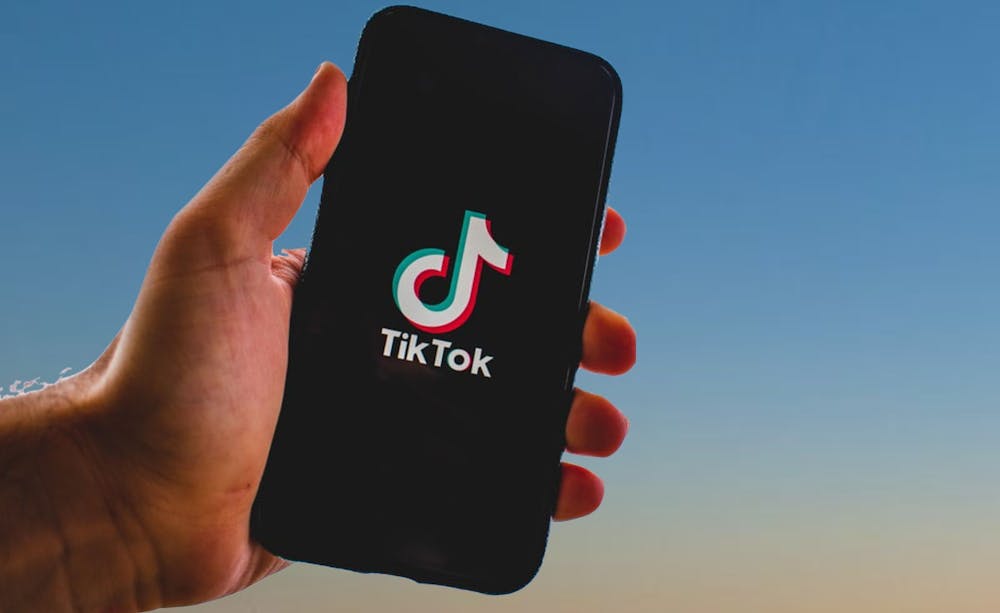TikTok, a popular video-sharing app, was due to disappear from Apple and Android App stores last Sunday, Sept. 27, under President Donald Trump’s executive order. Just hours before midnight, U.S. District Judge Carl Nichols temporarily blocked the ban.
If the government doesn’t reach a deal about how the app handles user data and privacy by Nov. 12, however, the app will become completely inaccessible. Over the past few years, since ByteDance bought Musical.ly in 2017 and through its recent partnership with Oracle and Walmart, the app has brought entertainment and comfort to millions of Tiktokers — a large portion of them high school and college students — through videos of adorable cats and smiling babies.
To others, the app has served as an important source of income, especially during the coronavirus pandemic. And despite the Trump administration “pushing for the narrative” of forcing China to “surrender the American operations” of TikTok, the download ban would have been a no-win situation — not for the company, certainly not for its users, and not even for the U.S. government. But above all, the party that would suffer the heaviest loss from such a ban is the global online community.
Much remains uncertain regarding how ByteDance and Oracle will overcome discrepancies over the app’s ownership — ByteDance claims 80 percent ownership, while Oracle holds that the Chinese government shall have none. In the face of such uncertainty, competing apps such as Dubsmash, Facebook’s Reels, and Triller have rushed to fill the void.
Surely the TikTokers themselves have nothing to gain, either. Fears over the app’s safety and the uncertainty of its future have driven TikTokers to switch to “safer” platforms. TikTok-famous accounts risk losing followers and income in these moves. Almost 60,000 users have signed the ongoing petition to “keep TikTok in the United States” because, once deleted — by mistake or a moment’s determination — there’s no going back.
Does the Trump administration really gain from its ban on TikTok? The executive branch ostensibly ordered the ban on TikTok to protect national security. The Committee on Foreign Investment in the United States has scrutinized TikTok for over a year and found nothing notable.
A recent report by the Central Intelligence Agency also found no evidence of Chinese intelligence authorities intercepting data. Counterintuitively, the ban has created a higher risk; hackers have used the public’s panic over TikTok’s download ban to create scam apps such as Tik Tok Pro to install spyware and steal credentials.
Who, then, is the real winner in the deal?

What happens to TikTok today happened to many apps yesterday and may happen to many more in the future. What does this all spell for the future? Social media offers a worldwide platform, which facilitates global entertainment and communications. Mistrust among countries and deteriorating international relations, however, are pushing countries to halt the influence of foreign social media apps in their own country. Such virtual boundaries entirely defeat the purpose of the worldwide web.
This raises many more questions and concerns. Are we headed toward a future in which countries resort to only their own apps? Are even the apps we use becoming politicized? Will the government have the power to decide which apps its citizens have access to on their phones?
People are much more than politics, and their online activity should not be determined by their countries’ political standpoint. The Trump administration took unprecedented action against TikTok — a presidential executive order that banned access to a single app.
Like puppetry, the government is the one pulling on the general public, whose own choice over the entertainment that they enjoy are now not theirs to make. Especially with a large portion of TikTokers in their high school and college years, is this not a form of political indoctrination of its own?

Kelsey Ji is a first-year from Cambridge, Mass. She can be reached at xingej@princeton.edu.








